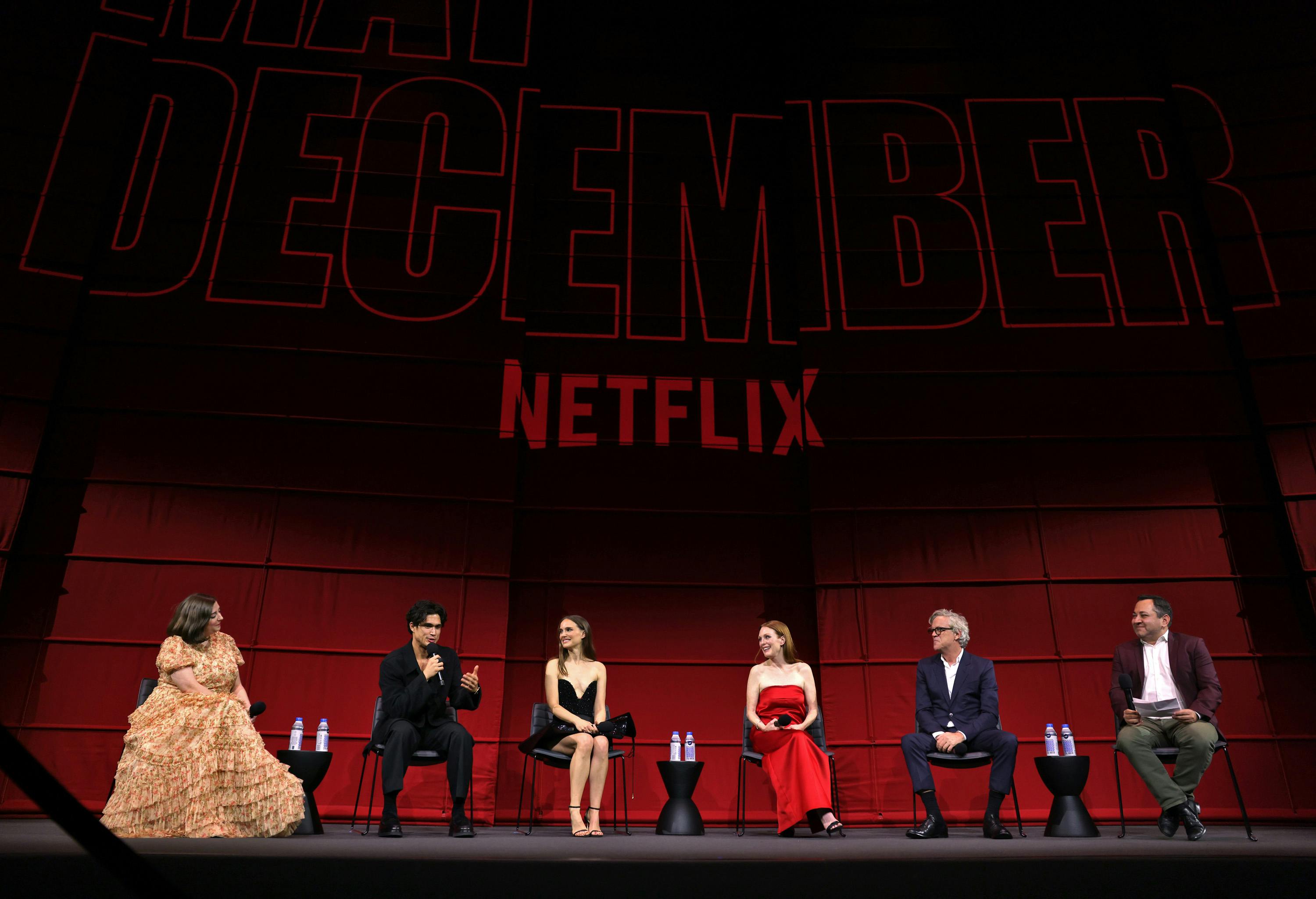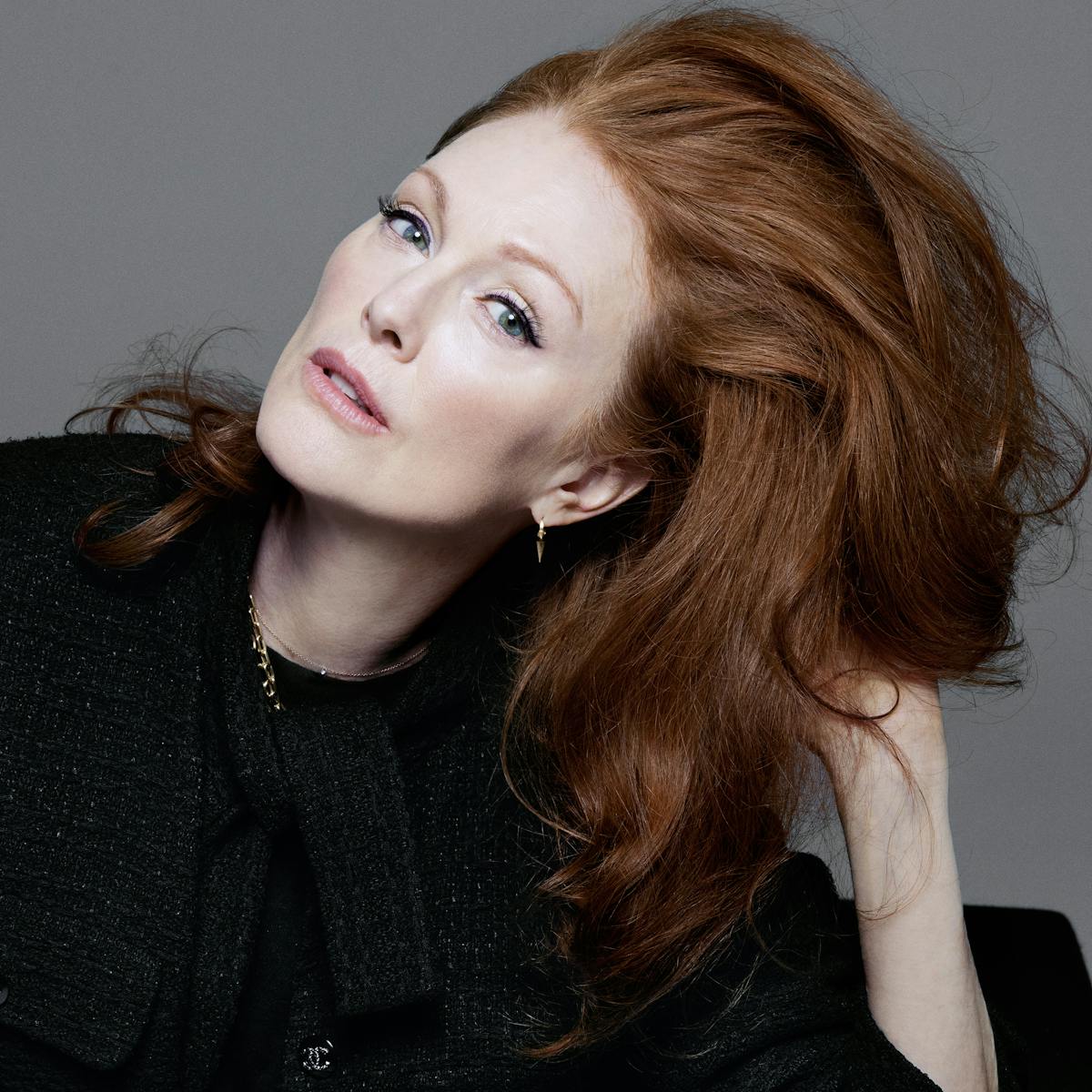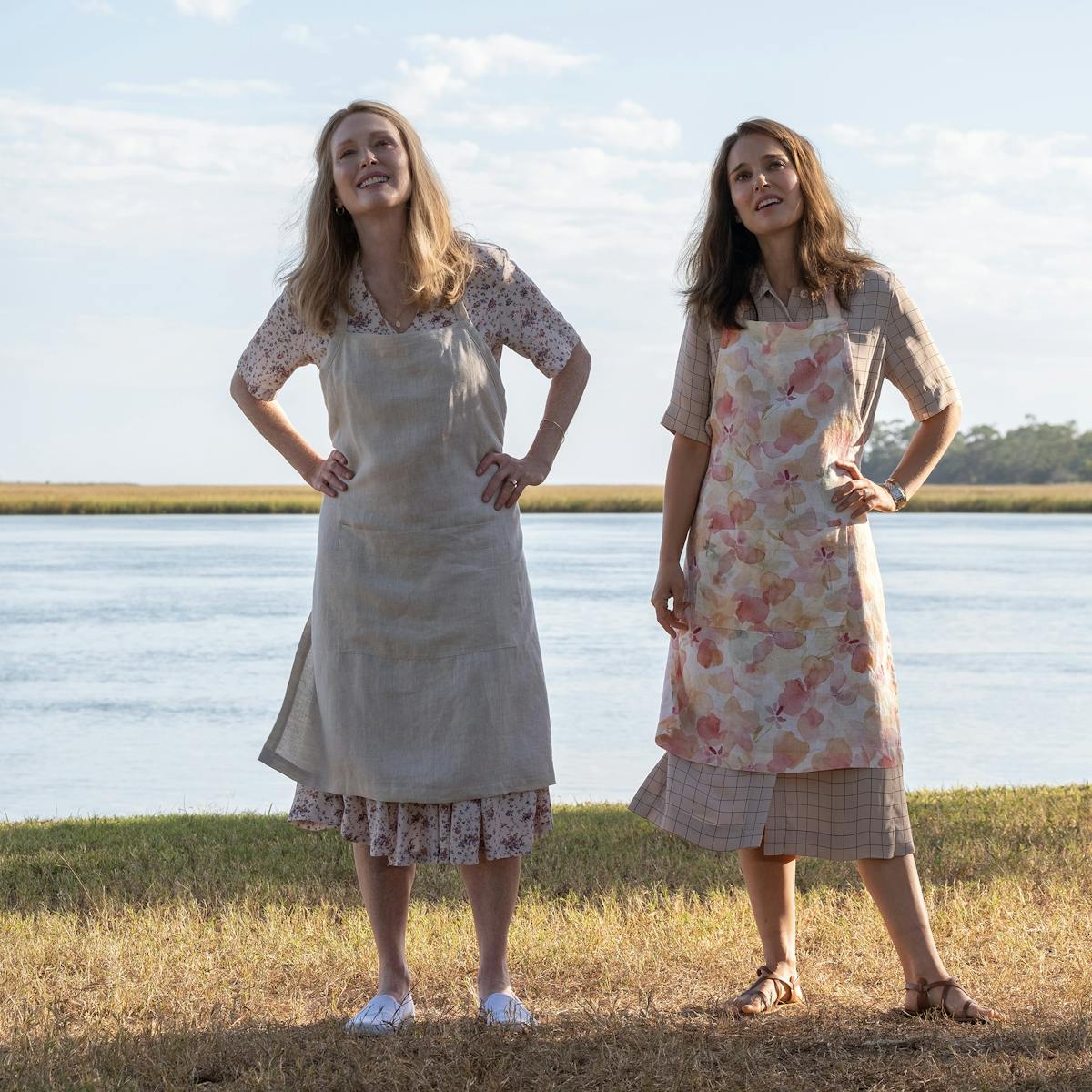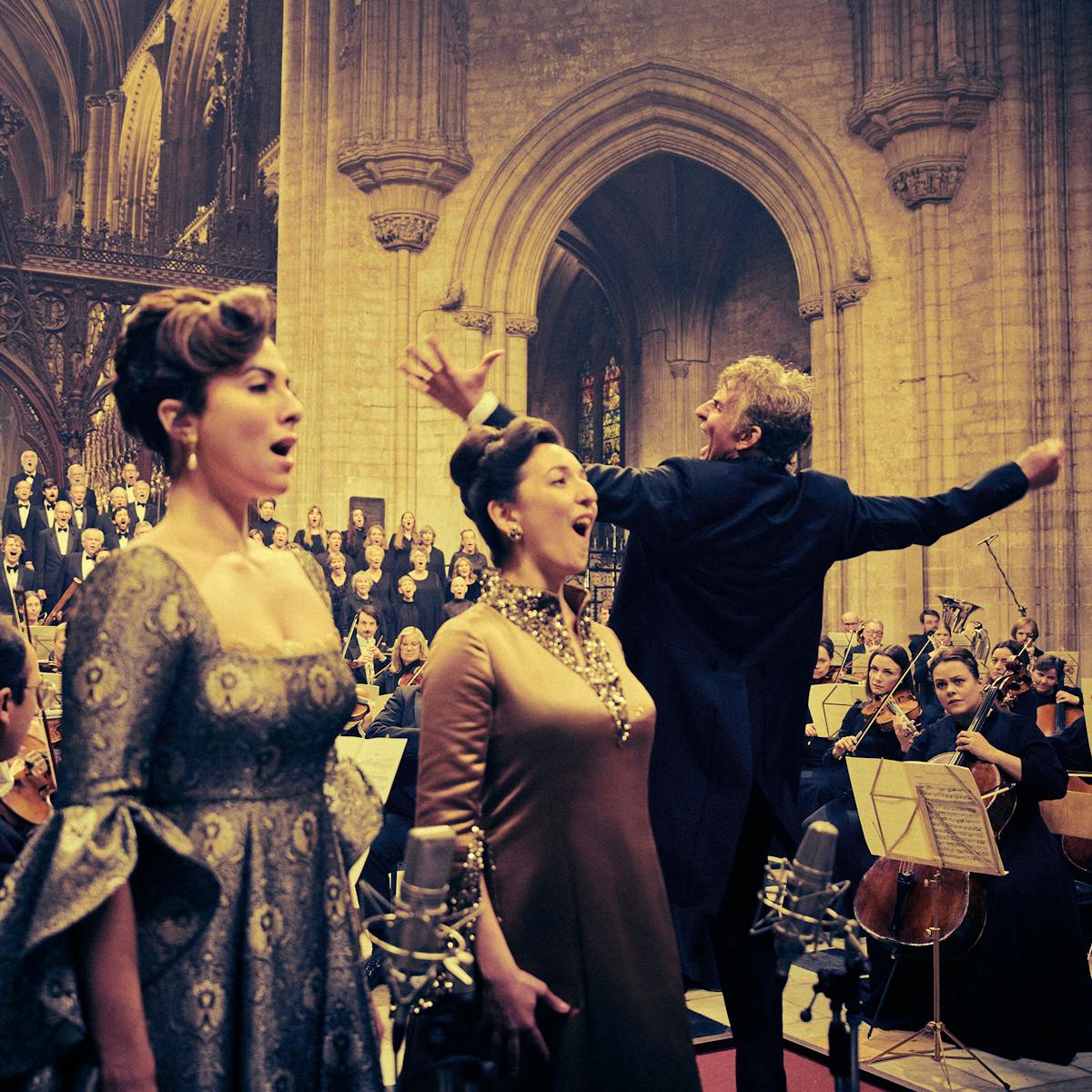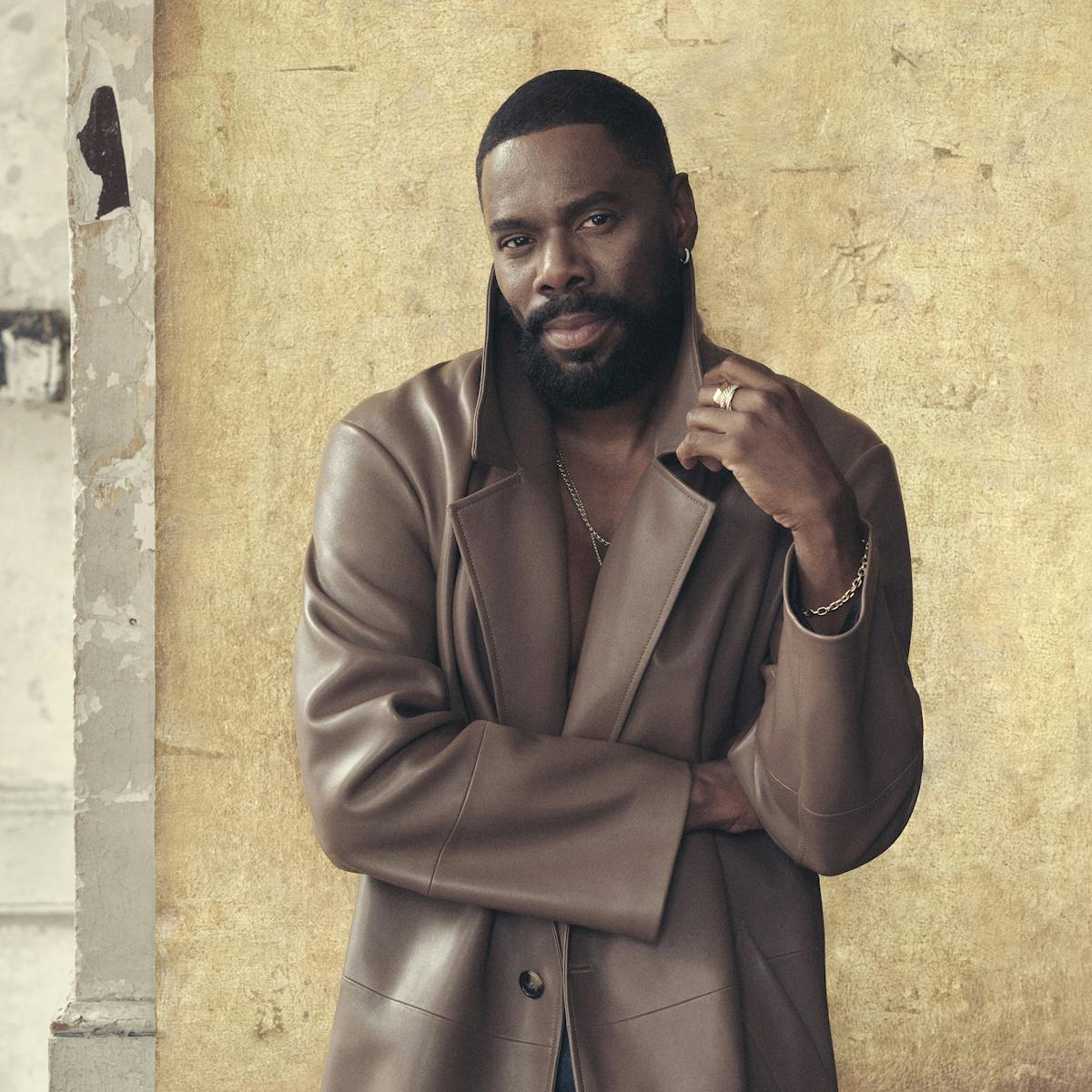After the film's premiere, actors Julianne Moore, Natalie Portman, and Charles Melton, director Todd Haynes, and writer Samy Burch reflect on making May December.
Ever since May December premiered at the Cannes Film Festival this past May, Todd Haynes’s impeccably crafted dark comedy has elicited wild enthusiasm from audiences riveted by the powerhouse performances of its female leads, Oscar winners Natalie Portman and Julianne Moore.
Portman plays actress Elizabeth, as she arrives in Savannah, Georgia to visit Gracie Atherton-Yoo, a woman who gained tabloid fame 20 years prior when she began an illicit relationship with a middle-schooler, served prison time, then married him and embarked on a quaint suburban life. Set to star in a new film about that tumultuous period in Gracie’s life, Elizabeth hopes to gain insight into the woman’s psychology and a better understanding of her connection to her husband Joe (Charles Melton), but the actor’s presence threatens to expose long-buried feelings of hostility and trauma.
Penned by first-time feature screenwriter Samy Burch, the movie is tense and thrilling yet also darkly funny, with character-driven comedy that borders on melodrama, and subversive humor highlighted through Haynes’s unique cinematic lens. Shot on location in Savannah, Georgia in just 23 days, May December represents Haynes’s first collaboration with Portman — who also produced the film — and it marks his fifth time working with Moore. (Their professional relationship dates back to 1995’s Safe, which announced both director and star as major rising talents on the indie scene.)
After Portman brought Burch’s May December script to Haynes, he immediately invited Moore to play Gracie, before embarking on a search for the right actor to portray Joe and casting Melton. On set, the actors and filmmaker worked collaboratively to bring Burch’s brilliant script to the screen. Says Moore: “It was a great partnership. It was so wonderful to go to work every day and know that we could create this together.”
After walking the red carpet for the film’s Los Angeles premiere, Portman, Moore, Melton, Haynes, and Burch reflected on the origins of May December and crafting such a singular film on such a tight timeline in a conversation moderated by The Hollywood Reporter’s Scott Feinberg.
An edited version of the conversation follows.
Scott Feinberg: Natalie, this project came to you first. What caught your eye about this?
Natalie Portman: Jess Elbaum, one of our producers, sent it to me. Samy’s writing is just so unlike anything I had ever read before, [and the script was] so full of the questions I am obsessed with — about performance and identity and women’s construction of identity through performance. I’ve sent many things to Todd over the years trying to work with him. He’s always been very polite but didn’t take to any of them. This time, he loved it.
When you read this, what specifically made you say, “This is going to be something that Todd might go for?”
Portman: He’s played so much with identity in his work and has had such sensitive, nuanced, complicated portraits of women that I hoped that he would take to this.
Todd Haynes: This script blew my mind. The prospect of working with Natalie Portman, whose work I’ve been following with such astonishment her whole career — this was the opportunity to do so. But the fact that there were these two incredibly complicated female characters at the center of this script is so rare and so unusual. When I started to talk to Natalie about it, her interest in the gray areas, in pushing the boundaries of what audiences would feel comfort and discomfort around and challenging their expectations, [that] made me think of somebody I know extremely well. So, I slipped it to Julianne so she could just privately check it out and see if she was interested and she said . . .
Julianne Moore: Hell yeah.
Julianne, you and Todd obviously have this great track record — Safe, Far from Heaven, I’m Not There, Wonderstruck, and now May December. Was it an immediate yes? Did you think about the magnitude of the challenge of this part, and did that give you any pause?
Moore: Can you imagine how exciting it is to get an email from Todd saying, “I’m going to slip you a script?” I know he’s very particular about what intrigues him, so I was like, Oh my God, let me read this right away. I was astonished by its complexity and by these two incredible female characters and their wonderful enmeshment and combativeness and strangeness. Right away, I was like, Oh, I’m in. I’m so in.
There’s so much nuance that has to be communicated by Joe, the character that Charles Melton plays. Can you talk about how he crossed your radar, Todd?
Haynes: This was a role that I knew was made for me and Laura Roosevelt, my casting director, to take on and to try to find somebody who, at least in our world, was a bit of a discovery. The whole film and its impact rested so heavily on the instincts of who this actor might be. Some wonderful actors read for the part. But Charles, whose work I did not know at the time, did something that nobody else did. It was unlike any other reading. It functioned in this state of present tense. This unbelievably pent-up, nuanced, tentative fragility was all evident right up there, right away. And it singled out [his audition] from any other actor that I saw, and it made me see and understand who Joe was more clearly. I had him read together with Julianne and that was when we first really met in person.
Charles, when you first heard about the possibility of being involved with this, I imagine it might be a tad intimidating to know that you would be working with two Best Actress Oscar winners who are at the top of their game.
Charles Melton: Yeah, I was excited, nervous, scared. It was a six-week process of self-taping before I flew out to New York City to do a chemistry read with Julie and Todd. I remember standing outside of the audition door, and it was like heaven — the lights were coming out from the crack of the bottom of the door. I hear Julie and Todd talking with Laura, and I’m like, This is it. I went in there, and the next thing, I blinked my eyes and I was outside the room. I was like, What just happened? It led to this beautiful experience for 23 days in Savannah, Georgia, with Natalie and Julie and Todd. And it was, to this day, the greatest experience of my career. I learned so much from these legends, icons.
Todd, Charles brings up the fact that you guys shot this in Savannah, Georgia. What do you think that city brings to the story here?
Haynes: It really became such a character, it’s impossible to imagine any other [setting]. Samy had originally set the script in Maine, but Samy knew Savannah better than I knew Savannah because Samy had gone to school first at [Savannah College of Art and Design] and then left for NYU. But as is often the case, scheduling and practical factors around finding a time the three of us were available [led to us shooting there]. Last fall opened up, [but] the film is set in May. It has to be May — it’s graduation month [Gracie and Joe’s twins are graduating from high school]. There was no way we were going to be able to shoot in the fall anywhere in the [northern] East Coast or in Maine in the spring.
I had just been in Savannah for the film festival with my last film [the music documentary The Velvet Underground], and Sam Lisenco, the production designer, and I, we were like, Savannah. [We] looked at the map and found Tybee Island, which is about 20 minutes outside historic downtown Savannah. I thought that would be a really interesting place for Gracie to live. We went and we scouted it, and it all just unfolded from there.
Samy Burch: It was awfully lucky that I had lived there for a year. It does feel essential now. I mean, Savannah is so beautiful, but it’s a very complicated city and very strange and haunted, and all of that really felt right.
Now, Natalie and Julianne, how closely were you able to work with each other before the cameras were rolling? And how well did you even know each other before this project?
Portman: We didn’t know each other well, and we didn’t have any time before we started. So the real process of me learning what Julie was doing and studying her happened while my character was doing it, which worked in a way. I was genuinely watching everything she was doing and being like, What can I take? I’ve admired Julie my entire life. I just worshiped her work and particularly her collaborations with Todd. So, I was totally terrified to meet my idol. Then she just exceeded expectations by being the most genuine, loving, warm, generous person. I was lucky that my character was kind of in awe and taken with her because I got to just also do that, to watch her and study her and be like, Oh my God, I’m actually getting to see this up close and put it into the character as well.
Moore: I have to say, I love Natalie. I’ve admired her work for so long, and I was so grateful to have this opportunity with her. We had no time really to discuss the choices — we just had to make the choices and go with it. Gracie is someone who is in need of, obviously, approbation from everyone in the world, particularly from this woman [Elizabeth] she’s invited to observe her. Natalie was able to come into it, and as she started to appropriate [Gracie’s] behavior, [she was able] to do it in a way that made me as a character feel incredibly flattered. It was like a stroke of genius. It was wonderful working with another actor who was able to give you that sort of assurance on a character level. Of course, when I saw the movie finally, I realized that she was able to simultaneously do that, and then when my back was turned, do something else entirely. I was like, Oh my God, she’s amazing.
